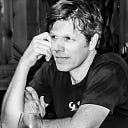The Conversation, Walking Together, That Didn’t Happen
Acknowledging growth and change in others, is what unconditional love looks like
This article was co-written in conversation with my partner, Dr. Saliha Bava.
Thinking about this today…
Relationships are emergent, co-creative spaces where human beings evolve. If men or women go in thinking they already know what an entire relationship needs to be, it’s a recipe for atrophy and stasis. A partner who seeks to define life for their spouse is a controlling child.
On one level we should probably just get married again every year, state our vows anew, because that’s how quickly we are changing and growing. “I’m not who I was.” For better or for worse, we are constantly co-creating in our relationships who we are becoming.
This holds true for children and parents, brothers and sisters, spouses, friends, co-workers and so on. We are becoming who we will become next, minute by minute, in the back and forth of relating.
It’s incredibly empowering to think in this way because it allows us to change course and do better, minute by minute.
One of the core ideas of relational intelligence is that we are shaped and changed, ourselves and others, in the powerful process of relating. We define a relationship as a space instead of a thing; a dynamic space in which what and who we are, is forever emerging.
What is remarkable is that our relationships continue to form who we are, even when those individuals are long gone. A grandparent no longer living can continue to inform who we are becoming as we change and then reconsider what we experienced with them from a new perspective.
Acknowledging and supporting that constant process of growth and change in others, even when it threatens to shift our own constructions of life, is what unconditional love looks like.
When we instead, for example, marry and then seek safety and control by trying to keep that person sexually, emotionally, professionally, socially forever frozen in that one moment in time, we create ever increasing tension between our reliance on predictability and the actual truth of our evolving humanity.
That person will change, evolve, while we remain fixed on at the place they once stood. Whatever the reason for our need for predictability, whether we fear change, or relating, or our own insecurities, the growing tension between our need to keep things what they were, and our partner’s becoming who they are becoming, eventually breaks the lingering connection.
We look up one day from the spot we are fixated on, the spot where our partner or child was ten years ago, and they have walked away over the hill and are gone from sight. What could have been a rich conversation about discovery and change, walking together, didn’t happen.
Seeing just how vast the human potential for daily and hourly change is, isn’t a threat to us. It is our natural state of being. We can see such an endless universe in our partners. There is so much possibility, excitement, reward and hope. It is here that the richness of life resides.
Mark Greene is co-author along with Dr. Saliha Bava of The Relational Book for Parenting.
